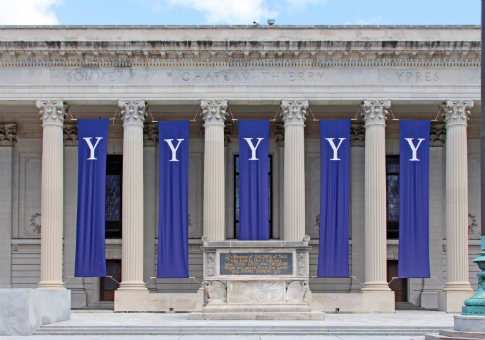Group behind affirmative action ban says decline in Asian students is evidence of discrimination

The group behind the lawsuit that brought down affirmative action in college admissions is demanding answers from universities that saw almost no change in the racial breakdown of their classes after the ban took effect, arguing that the similarity is evidence of discrimination and possible grounds for a lawsuit.
Students for Fair Admissions, which won its landmark case against Harvard before the Supreme Court last year, sent letters on Tuesday to Yale, Princeton, and Duke, urging their lawyers to “preserve all potentially relevant documents” in the event of litigation.
“SFFA is deeply concerned that you are not complying with Harvard,” the letters read, a reference to Students for Fair Admissions v. Harvard, the 2023 Supreme Court ruling that outlawed racial preferences in college admissions. “You told the Supreme Court that, without explicit racial preferences, it would be impossible to ‘obtain the diverse student body’ that you obtained in the past.”
Yale, Princeton, and Duke signed an amicus brief in 2022 stating that black and Hispanic enrollment would plunge in the absence of affirmative action. But when those schools released data on the first classes they admitted after the Supreme Court decision, the number of black and Hispanic students was virtually unchanged.
The number of Asian students, meanwhile, declined at all three schools—by 2 percentage points at Princeton and 6 percentage points at Yale and Duke. Both outcomes would have required dramatic and hitherto unannounced changes to the admissions process, according to the letters, which ask each school to explain what “new, substantial race-neutral alternatives” were adopted after the affirmative action ban.
“Without that information, SFFA will conclude that you are circumventing the Supreme Court’s decision,” the letters say. “SFFA is prepared to enforce Harvard against you through litigation.”
Officials at Princeton, Yale, and Duke did not respond to requests for comment.
The letters come as schools subject to the same legal regime and competing for the same pool of students are reporting strikingly different results in the wake of the Supreme Court’s decision. While some schools saw little change in their racial makeup, others, including MIT, saw a steep drop in black enrollment—and a concomitant rise in Asian admissions—that were more or less in line with expert predictions.
Students for Fair Admissions cited that divergence in its letters on Tuesday, challenging the recipients to explain why their numbers were so much different from those of other schools.
“Notable peer institutions are also reporting much higher percentages of Asian Americans,” the group wrote, “like Harvard (37%), Columbia (39%), and MIT (47%).”
In his 6-3 majority opinion last year, Chief Justice John Roberts wrote that universities “may not simply establish through application essays or other means the regime we hold unlawful today.” The numbers at Yale, Duke, and Princeton suggest that some schools did not heed that warning, according to the letters, and are already raising eyebrows among legal scholars.
“It looks to me like Yale is deliberately sending a message that it doesn’t intend to comply with the law,” said Gail Heriot, a law professor at the University of San Diego and a member of the U.S. Commission on Civil Rights. “The fact that the Asian-American numbers have gone down so drastically at Yale strikes me as a red flag.”
Some universities seemed keen to circumvent the decision from the outset, adding essay prompts on “diversity” and “disadvantage” and brainstorming legal strategies to get around the ruling.
At a conference of law school officials last year, Mark Alexander, the faculty chairman of Villanova Law, suggested that religious schools might have a First Amendment right to practice affirmative action.
As a “Catholic institution,” Villanova believes that “we are strengthened by individuals of diverse backgrounds,” Alexander said. “If we were not allowed to pursue those values, would that be a violation of our religious freedom?”
Original News Source – Washington Free Beacon
Running For Office? Conservative Campaign Management – Election Day Strategies!
